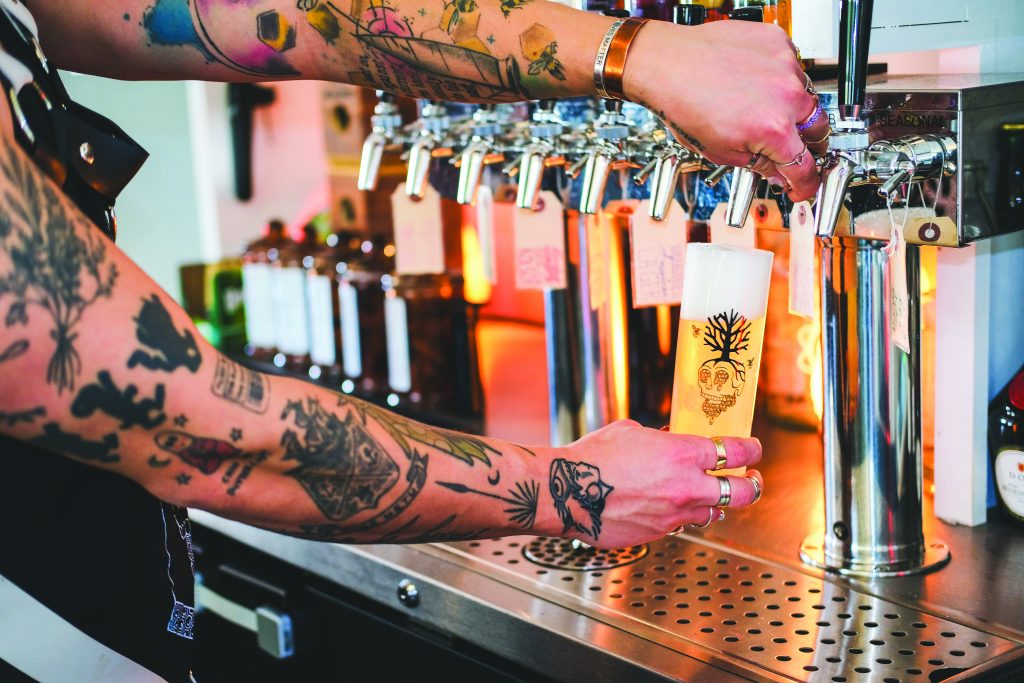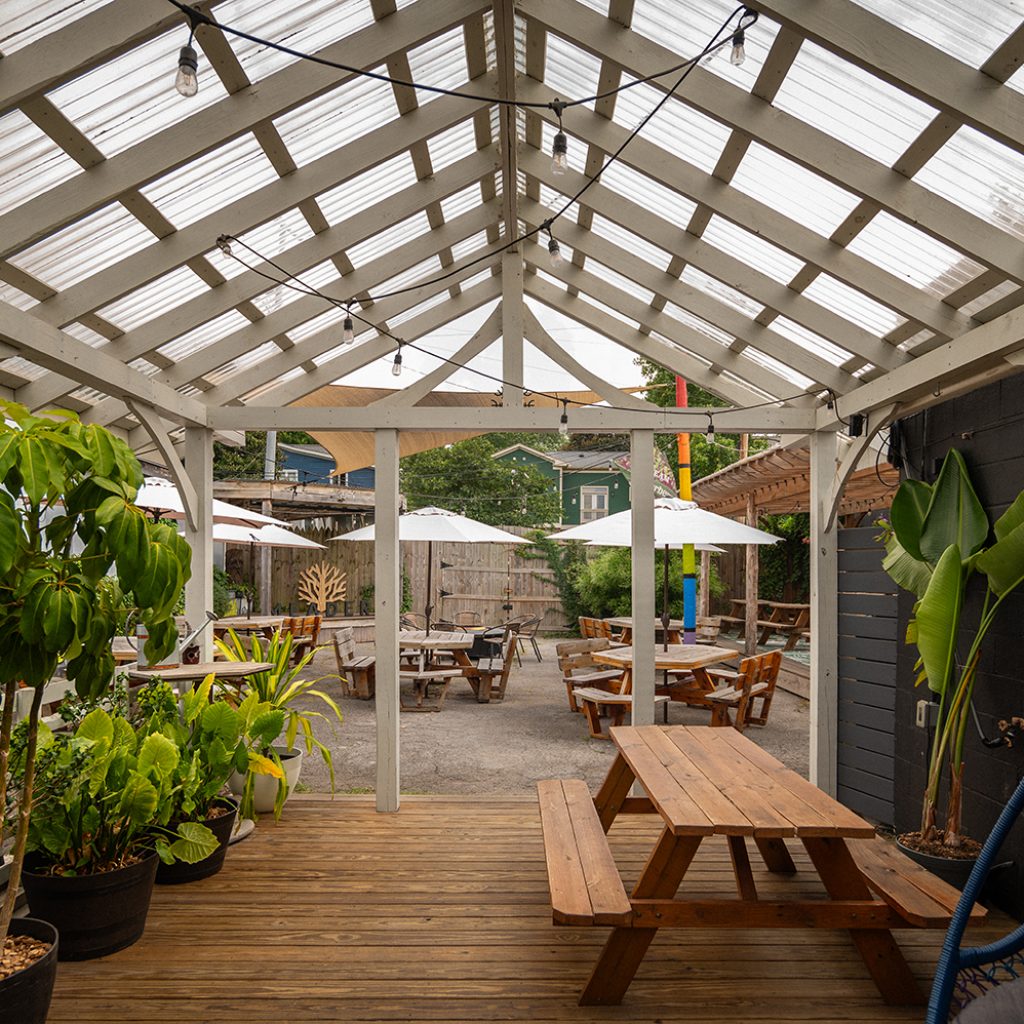
Saving bees one drink at a time
In the beginning, lucky Homo sapiens likely enjoyed the earliest happy hour when storms snapped a tree containing a beehive and allowed rain with natural yeasts to flood the colony and ferment the honey. Lo, that leftover liquid tasted good—like, really good. Mead became a thing, making its first appearance in the archaeological record some 9,000 years ago in China, where chemical signatures of honey and fermentation were found on pottery.
In Nashville, the history of mead is much more recent. Honeytree Meadery opened in May 2019 and has elevated mead to a height that would make Romans rue their rainwater. The result is a win-win. Honeytree sources honey from 2,000 bee colonies across Tennessee, creating demand for apiaries who, in turn, provide invaluable pollination services. Meanwhile, Honeytree’s 14 140-gallon fermentation tanks fuel a groovy hive in East Nashville.
The story starts with Ross Welbon, a former brewmaster for Little Harpeth Brewery and the brains behind its popular Mosaic IPK. A passionate beekeeper, Ross felt the need for mead.

“We were looking for a unique way to generate revenue for beekeepers in our state while breathing new life into the age-old concept of mead,” says Ross, who co-owns Honeytree with Dru Sousan. “Ultimately, the name of the game is to save the bees by drinking booze.”


But while Honeytree Meadery is very much a locally focused small business, it plays an important role across the state. “We help spearhead the Tennessee Farm to Tap initiative,” says Honeytree bar director and bee rights activist J.A. Harrison. “We not only source our honey from Tennessee apiaries, but also much of the produce for our cocktail program comes from Tennessee farmers.”
To prove his point, J.A. prepares a Dionysus’ Disguise, a gin cocktail featuring native Tennessee pawpaw, a custardy fruit with hints of banana, mango and berries. “I bought 40 pounds in August,” J.A. says of the short-lived, late-summer fruit. “Juiced it all up. Froze it. And take it out as needed.”
He has put the same care into some 70 signature recipes, which represent both business and environmental advocacy.
“One of our primary goals in serving mead is educating the public on the importance of pollinators,” J.A. says. Honeytree Meadery hosts informational tours every Friday and Saturday and provides mead-making classes the first Saturday of each month, encouraging participants to add their own twists, like Ross did when he first used yeast from beer to make mead.
“Pretty much all the mead recipes the world over are from wine-derivative yeast strains,” J.A. explains. “Ross found better success with beer-strain yeast. We could achieve fermentation faster and more consistently.”
It’s hard to disagree, as we sample meads from bottles with handwritten labels denoting different apiaries across Tennessee. Each provides a unique flavor profile, but all are uniformly wonderful.
Honeytree Meadery
918 Woodland Street
honeytreemeadery.com